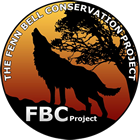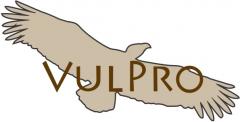VulPro
BUY TICKETVulPro Charity
There are two families of vultures which evolved completely separately – Old World Vultures which are found in Africa, Asia and Europe, and the New World Vultures found in the Americas. Typically, New World Vultures have weaker feet and a great sense of smell, whilst Old World Vultures have large feet and excellent eyesight.
VulPro was established in 2007, working to protect the native vulture species in South Africa.
The main objectives of the charity include:
- Vulture rehabilitation
- Captive breeding and reintroduction programmes
- Wild population breeding monitoring
- Vulture educational and awareness programmes
- Veterinary and ecological research
- Distribution, dispersal, and foraging ranges of vultures
With the many threats that vultures are facing throughout southern Africa, vulture rehabilitation has become an essential part of VulPro’s work. Collecting grounded, injured, poisoned and disabled vultures around South Africa, with special emphasis within the Gauteng, North West, Limpopo, Free State, Eastern Cape and the Northern Cape Provinces, VulPro is able to save many vultures that would otherwise have met their untimely deaths. By doing this, VulPro is in a position to release the vultures that are fit and healthy and to keep those that cannot be released in captivity for breeding, research, and educational purposes. Vulture populations are, in many instances, so depleted that the rehabilitation and release of individual birds can be ecologically and genetically significant.
GPS tracking devices are used to determine foraging and home ranges of a large number of vultures in Southern Africa. The output from this research allows for the monitoring of capture-release free-ranging vultures and for the mapping of areas for further actions such as community education and the safeguarding of vulture food through the monitoring of vulture restaurants in addition to finding hotspot vulture threat zones.
VulPro conducts and facilitates educational talks and interactions with both tame and wild vultures at the rehabilitation and educational centre in Hartbeespoort, as well as at external venues and with groups of varying demographics, ages, interests, and expertise. Though VulPro mainly focuses on helping vultures for release, the centre has several permanent residents that cannot be re-released at their centre which are used for breeding and education programmes.
There are eight species of vulture found in South Africa:
- Ruppell’s Vulture – Gyps rueppellii – Critically Endangered
- White-headed Vulture – Trigonoceps occipitalis – Critically Endangered
- Hooded Vulture – Necrosyrtes monachus – Critically Endangered
- White Backed Vulture – Gyps africanus – Critically Endangered
- Cape Griffon Vulture – Gyps coprotheres – Endangered
- Lappet-faced vulture – Torgos tracheliotos – Endangered
- Bearded Vulture – Gypaetus barbatus – Vulnerable
- Palm-nut Vulture – Gypohierax angolensis – Least Concern
Thanks to your generous support, we are able to work with VulPro to try and save critically endangered and endangered species from the brink of extinction. 2018 funding went towards rehabilitating injured vultures with the intention to re-release. Released vultures are fitted with GPS trackers to monitor their distribution etc. In November 2019 VulPro made history by releasing 35 captive bred and rehabilitated vultures.
To find out more about VulPro and the work they do visit their website by clicking their logo below.

